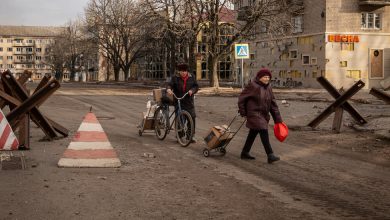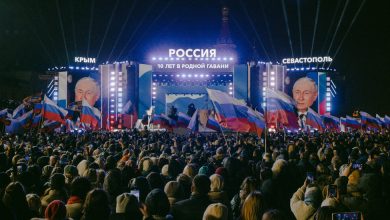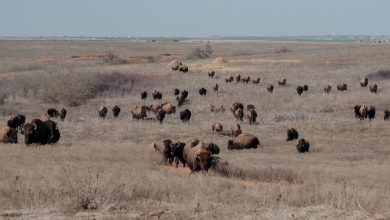The U.N. Security Council meets as Ukraine accuses Russia of atrocities.

President Volodymyr Zelensky of Ukraine is set to give one of his most high-profile speeches since the war began when he addresses the United Nations Security Council by video-link on Tuesday.
With three permanent members of the Security Council — Britain, France and the United States — firmly in his corner, Mr. Zelensky was expected to make the case that Russian forces have committed war crimes, as evidence emerges of civilian killings in the suburbs of Kyiv.
But Russia and its ally China are also permanent members of the council, holding veto power over any measures it might take. Ten nonpermanent members also have a say: Albania, Brazil, Gabon, Ghana, India, Ireland, Kenya, Mexico, Norway and the United Arab Emirates.
Here’s what you need to know ahead of the meeting:
How does the Security Council work?
The 15-nation Security Council is the most powerful U.N. body. Its responsibility is to protect and maintain international peace, and it has the power to enforce decisions that member states are obligated to follow under the U.N. Charter.
Once a threat to peace is brought before the council, the first step is to push for a resolution by “peaceful means,” which includes investigations, mediation or appointing a special envoy. If the threat is not resolved, economic sanctions, the severance of diplomatic relations, travel bans, collective military action and arms embargoes are among the last measures the Council can enforce. The Council can also dispatch peacekeeping forces.
What could happen at the meeting today?
It is unlikely the council will agree on any measures against Russia, as Russia is almost certain to veto any resolution on Ukraine as a permanent council member. But Mr. Zelensky is likely to demand that allies supply his county with more weapons and further isolate President Vladimir V. Putin of Russia.
The meeting will be a prominent venue for the nations aligned with Ukraine to make impassioned pleas and for Russia to issue sharp denials of atrocities.
In February, the Russian ambassador to the United Nations vetoed a Security Council resolution written by the United States and its allies that condemned Russia’s invasion of Ukraine. The ambassador, Vasily Nebenzya, used his speech to criticize the United States for invading Iraq in 2003.
Who will support Russia?
China, an increasingly important Russian ally, has avoided any criticism of Russia since the war started and has painted Russia as a long-suffering victim of the West. In the council vote in February, it abstained, while calling on Western nations to listen to Russia’s concerns.
Among the 10 rotating members, Brazil and Gabon also have close ties to Russia. President Jair Bolsonaro of Brazil flew to Moscow right before the invasion, and has taken a position of neutrality on the war. Gabon, one of Africa’s largest oil producers, has ties with Russia dating back to the Soviet Union.
What about the other members of the council?
Ireland and Norway are likely to join other Western democracies in backing Ukraine. Ghana has deep ties with the United States and will also likely support the Western position.
India has tried to maintain relations with Russia while not antagonizing the United States, and its position in the conflict has been harder to discern. In February, India invoked its decades-old ties with Russia when it voted to abstain from the Security Council resolution. The United Arab Emirates, a U.S. ally in the Middle East, also abstained in February’s vote.





